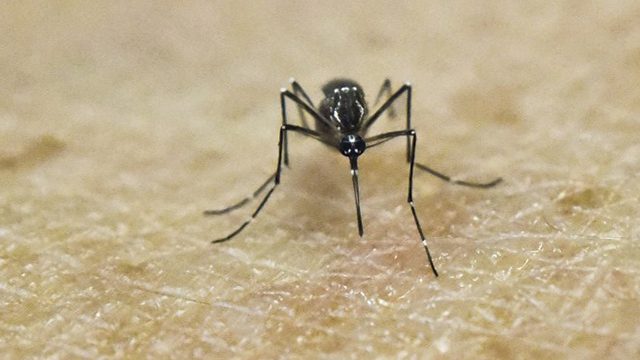SUMMARY
This is AI generated summarization, which may have errors. For context, always refer to the full article.

MIAMI, USA – US health authorities on Friday, September 30 extended to 6 months a warning to men about the risky time period for sexually spreading Zika virus, which often carries no symptoms but can cause devastating birth defects.
Men who live in or have traveled to an area of active Zika transmission are now urged to wait half a year before attempting conception, regardless of whether they have been diagnosed with Zika or showed any symptoms, the US Centers for Disease Control and Prevention said.
“Based on new though limited data, CDC now recommends that all men with possible Zika virus exposure who are considering attempting conception with their partner, regardless of symptom status, wait to conceive until at least 6 months after symptom onset (if symptomatic) or last possible Zika virus exposure (if asymptomatic),” it said in a statement.
Before, the CDC advised men with possible but unconfirmed Zika exposure – and no symptoms of the virus – to wait 8 weeks from the last possible exposure before having unprotected sex.
But in August, officials in Rome reported that Zika could persist in semen for as long as 6 months, based on the case of an Italian man who was infected with Zika while in Haiti.
Therefore, to reduce the likelihood of a woman being exposed to Zika around the same time as she is impregnated, the CDC updated its recommendations to urge men to take precautions for a full 6 months if they have possible Zika exposure.
The CDC defines possible Zika virus exposure as “travel to or residence in an area of active Zika virus transmission, or sex without a condom with a partner who traveled to or lived in an area of active transmission.”
As of September 26, Zika was active in 59 countries and US territories, the CDC said.
The federal agency also issued a warning Thursday, September 29 to pregnant women, recommending they postpone non-essential travel to 11 Southeast Asian countries due to “the uncertain risk of Zika virus infection.”
The countries are Brunei, East Timor, Cambodia, Indonesia, Laos, Malaysia, Maldives, Myanmar, Philippines, Thailand and Vietnam.
“Zika virus is considered endemic in some of these countries, and many people who live there are likely immune,” said the CDC.
“But US travelers to areas where Zika is endemic may not be immune to the virus and infections have occurred in travelers to Southeast Asia.”
In general, women who want to become pregnant and who have tested positive for recent Zika virus or unspecified flavivirus infection “should wait at least 8 weeks from symptom onset to attempt conception,” the CDC said.
If pregnant women are infected with Zika, either by mosquito bite or sexual contact, they face a higher risk of bearing a child with a range of birth defects including microcephaly, in which the child’s skull and brain are small and deformed. – Rappler.com
Add a comment
How does this make you feel?
There are no comments yet. Add your comment to start the conversation.